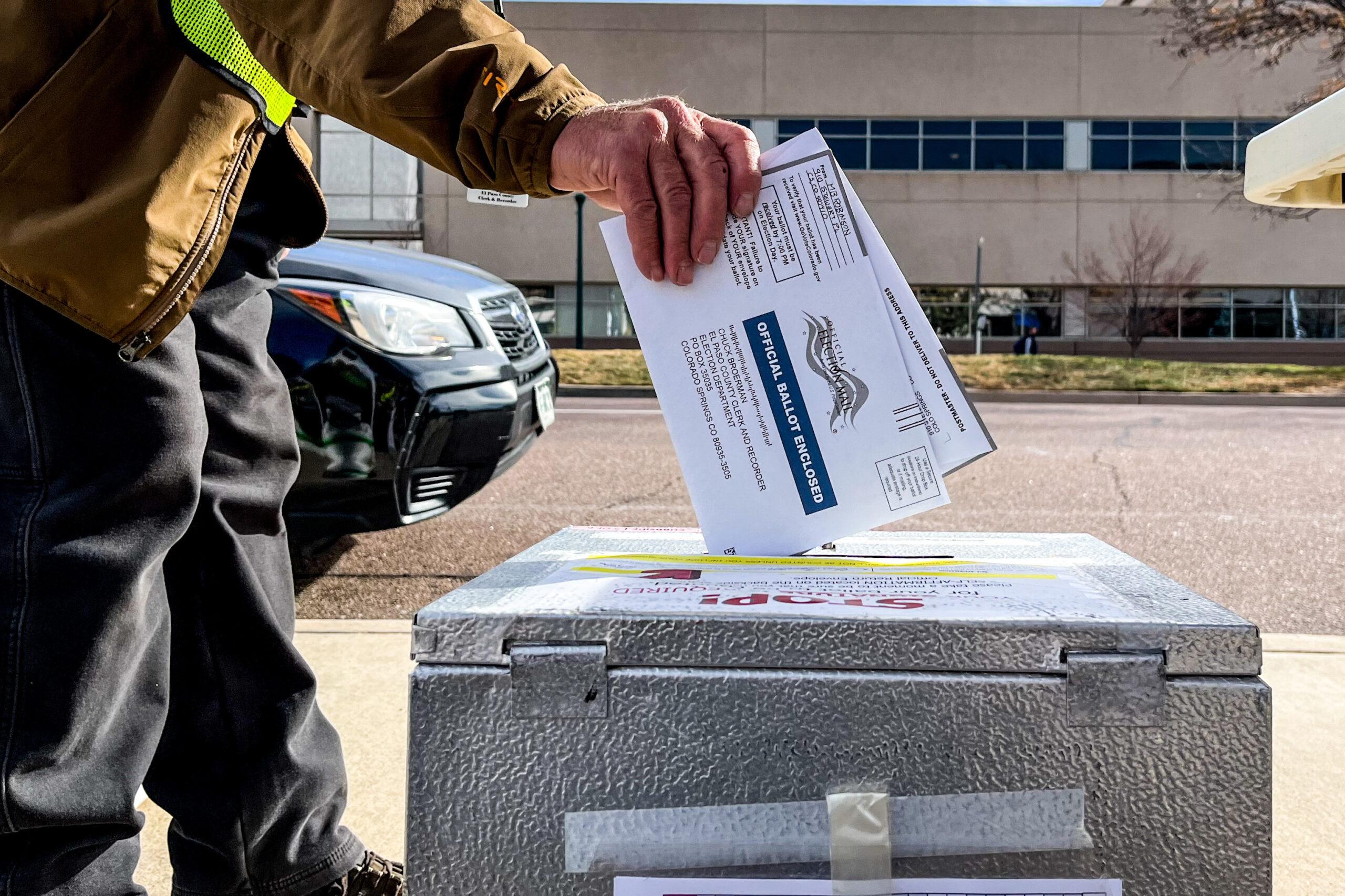
Usually, when candidates appear on the ballot, all a voter gets is their name and party affiliation. But occasionally, you’ll find some of them with just a bit more information.
Frank Atwood, an Approval Voting Party candidate in Congressional District 4, has it under his name this year. So does James Wiley, a Libertarian running in the 3rd Congressional District.
Under each of their names is a line reading “(Signed declaration to limit service to no more than 3 terms)”.
“Definitely my opponents haven't signed it,” Wiley said. “They have the intent to remain in office until they have to get dragged out of there in a wheelchair.”
Wiley is one of six candidates this year to take advantage of a 1998 change in the Colorado Constitution that allows candidates running for public office to submit declarations of voluntary term limits and have that pledge shared with voters.
“Information for voters about candidates' decisions to term limit themselves is more important than party labeling,” section 12a of the Colorado Constitution reads, “Therefore, any candidate seeking to be elected to the United States Congress shall be allowed, but not required, to submit to the Secretary of State an executed copy of the Term Limits Declaration.”
Wiley, who as a Libertarian has disdain for the federal government, said he found the pledge while going through the Secretary of State’s paperwork to file for his run and he believes that it was important to distinguish himself.
“I need to fight to ensure that when I get into office, I take that ring of power and I destroy it as opposed to putting it on my own finger and wielding it for the destruction of all humanity,” Wiley said, leaning deeply into a reference from J.R.R. Tolkien’s fantasy trilogy, “The Lord of the Rings.”
According to information provided by the Colorado Secretary of State’s Office, 39 candidates have submitted the required paperwork for the designation since 2004. Libertarian candidates account for 12 of them, the most of any party. Its use among major party candidates over that time is rare, with only two Republican candidates opting for it. Neither candidate was ever elected to office.
In fact, over the two decades of records provided by the Colorado Secretary of State, none of the candidates who submitted the pledge to the Secretary of State went on to win their race.
One legacy of a larger term limits crusade
Term limits were en vogue as a political topic in the 1990s, often spearheaded around the country by a group called U.S. Term Limits, which is still active.
Colorado voters adopted limits for state offices in 1990, but a similar effort to impose term limits on federal offices — like the U.S. House of Representatives or U.S. Senate — hit a major roadblock a few years later. A 1995 U.S. Supreme Court ruling, U.S. Term Limits, Inc. v. Thornton, found such measures unconstitutional, striking down laws in Colorado and other states.
Stymied but apparently still very enamored of the whole idea, a few years later Colorado voters created a way for candidates to voluntarily — and publicly — agree to limit their time in D.C.
Scott McInnis, who served in the statehouse as well as in Congress, said the years following the big push for term limits confirmed something the skeptics always believed.
“It didn't create a vacuum, it just shifted the historical knowledge out of the legislative floor where that historical knowledge was very important,” McInnis said.
McInnis said the term limits imposed on Colorado’s state lawmakers — eight years maximum in each chamber — have likely made it more difficult to accomplish complex things, like passing property tax relief, without the need for multiple special sessions. And he believes it’s emboldened lobbyists and outside groups to take advantage of a legislature that is regularly cycling in new politicians.
“If you ever have a heart attack and you're rushed to the hospital, make sure you tell them, ‘Hey, I don't want the heart surgeon that's been here more than eight years. Get me the new one just out of medical school,’” McInnis quipped.
(Colorado also has term limits for local elected offices but allows local voters to remove or extend them. According to Colorado Counties Inc., more than 50 Colorado counties have removed or extended term limits for some offices.)
While the effort to limit terms at the federal level was quashed in the courts, McInnis said that, too, would have had unintended consequences. He believes it would weaken the state’s ability to sway important regional issues like water.
“You think you got much of a chance when people know you're not going to be in Congress for another three years, up against any of the California people that have been there for years and control the committees?” McInnis said. “You think you're going to have a chance to become chairman of the Natural Resources Committee and help save Colorado law?”









